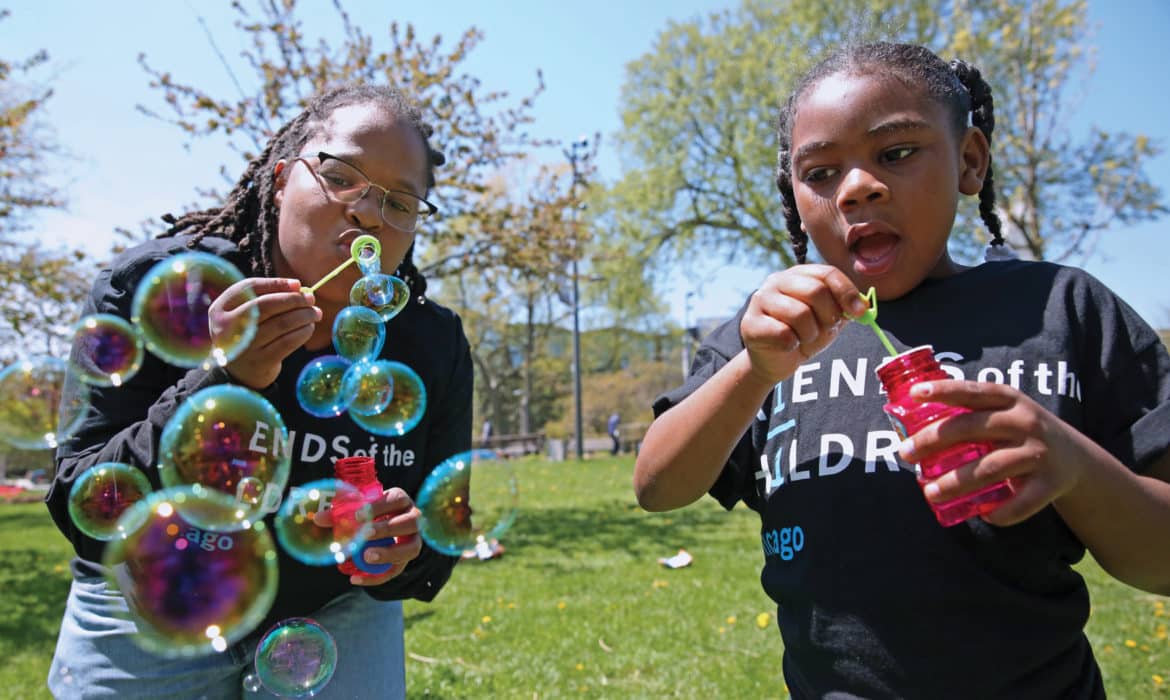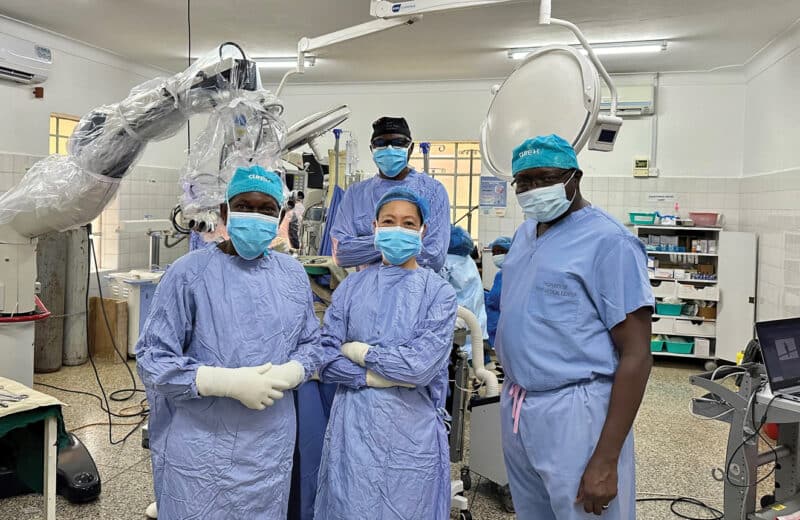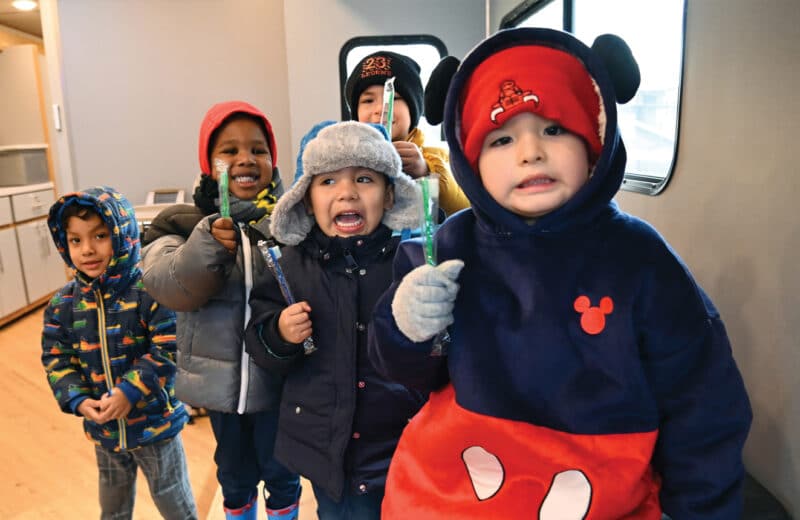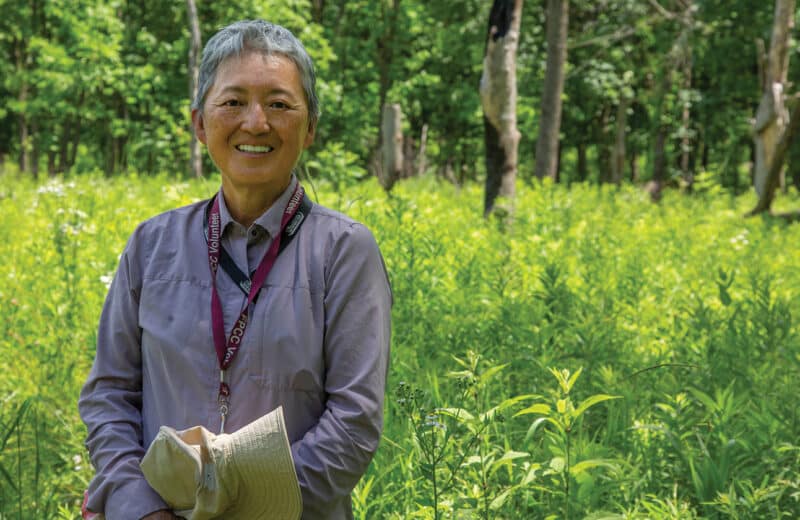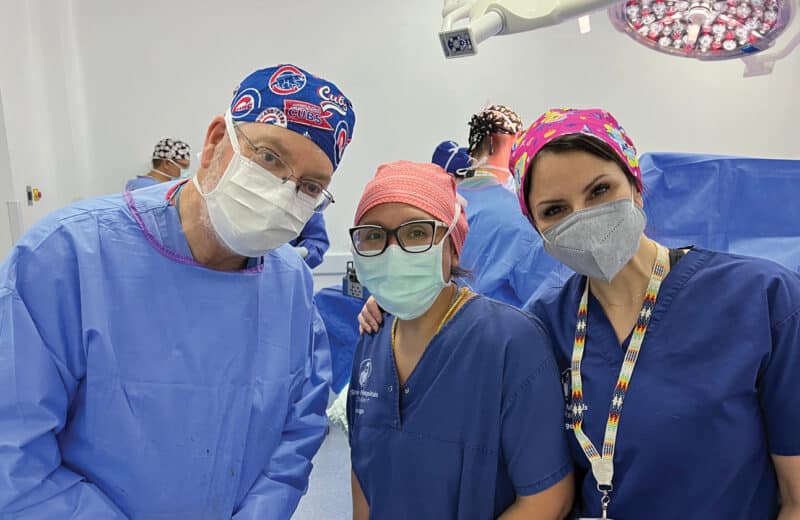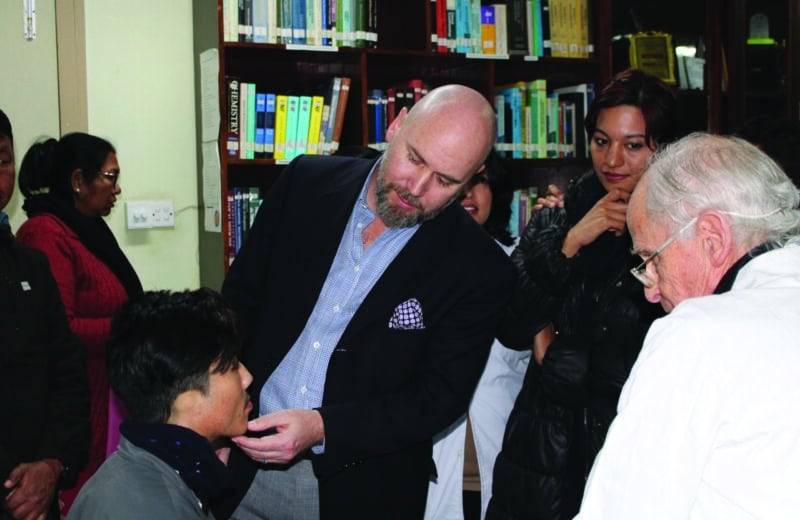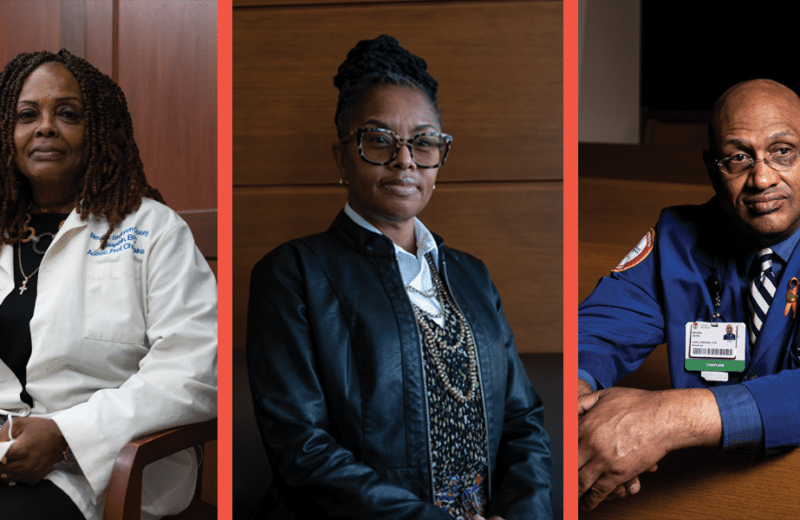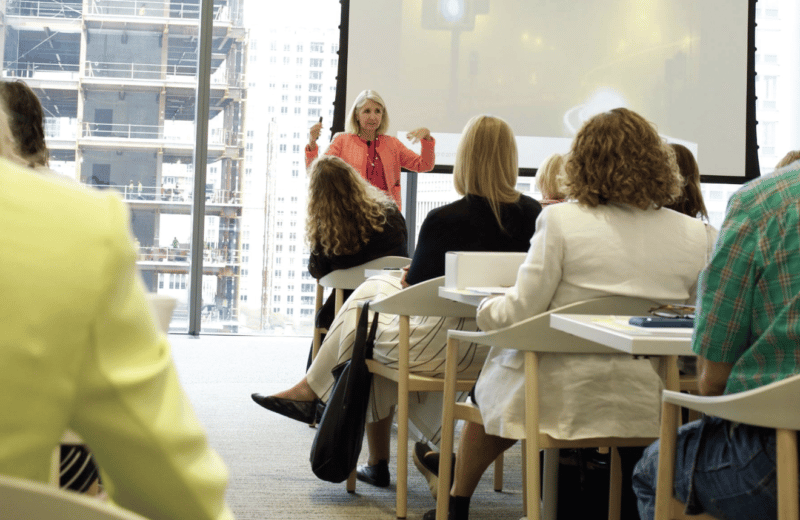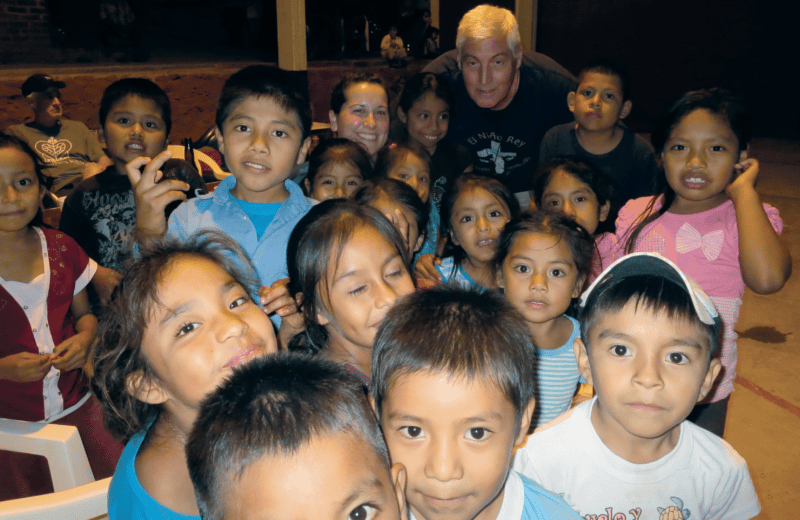Friends of the Children and Doors Open Dishes show the power of partnering up
Kenyetta Curtis remembers when her 8-year-old son was too shy to interact with other kids or when he’d become angry and not know how to control himself. Ocassionally, though, he would open up to a trusted adult. “Sometimes he was more comfortable talking to a man about his problems than telling his mother,” the Chicago mother of four says.
When Curtis learned of a new program that pairs youth with an adult who acts as their mentor from kindergarten through high school, she immediately signed her son up. A year in, Curtis has already noticed marked improvement in his demeanor and credits Felix, his “friend,” as a big reason.
Friends of the Children
Felix Kombwa is part of Friends of the Children, a nonprofit organization that pairs at-risk youths with a professional, full-time, salaried mentor (“friend”).
Friends of the Children, which began in Portland, Oregon, in 1993 with three salaried mentors serving 24 children, has grown to
17 locations in the U.S. and one location in the U.K. The Chicago chapter, launched in 2018, serves 56 youth on Chicago’s West Side, says its executive director Taal Hasak-Lowy.
Research shows the most effective way to disrupt the cycle of poverty, violence and trauma is through the presence of a consistent, positive adult relationship in the life of a young child — someone to nurture their development and advocate on their behalf.
“Having a strong support network can help break the cycle,” Kombwa says. When children grow up in poverty and violence, sometimes those are the only things they see. His role is to keep showing up for them.
“I’ll be here today. I’ll be here next week. I’m with you for the long-term,” he says to his young mentees. “We’ll go do things. We’ll try new things. And we’ll talk through any challenges that come up along the way.”
Unlike many organizations that rely on volunteers, Friends of the Children hires highly qualified staff with experience working with vulnerable youth. “Volunteers have the best of intentions, but often they are unavailable to meet their commitment to mentor because a friend’s wedding comes up or work gets really crazy,” Hasak-Lowy says. “Moving mentorship out of the volunteer realm is a key component to providing our children with the quality, consistency and commitment that they need.”
Mentors like Kombwa spend a lot of time with each of the eight children they serve, so they can build trust. Since he began working with Curtis’ son, Kombwa has noticed not only how much the boy has been opening up to him, but also how he has developed friendships and a willingness to try new things, like sports.
“Friends of the Children is mentoring on steroids,” Hasak-Lowy says. “All of the interactions between the friends and the youth are very intentional to provide the child with love and support and help them develop the relationships, goals and skills to overcome barriers and be best positioned for life-long success.”
Doors Open Dishes
The effects of mentorship can be profound for both the mentor and mentee.
When the budget crisis in Illinois led to cuts to many social services, including services for individuals with special needs, Nicole Schnitzler felt she had to do something to keep the doors open for group homes and workshops. Her brother, Daniel, was diagnosed with autism when he was 4 years old, and, at 43, he still loves his routines, especially around food.
Schnitzler, a food writer, often works with some of the best chefs in the city. Merging her work with her desire to help individuals like her brother, she founded Doors Open Dishes. The initiative pairs Chicago chefs with people who have developmental disabilities to share their stories through food.
“After meeting the client and learning a couple of their favorite dishes, the chef gets to work, spinning out one interpretation of a dish inspired by the conversation they had with the client,” Schnitzler explains. “That dish is showcased at their restaurant and directly supports the client’s organization.”
Doors Open Dishes is only one year old, but since its inception, it has created partnerships between restaurants and nonprofits such as Cindy’s Rooftop and Gateway to Learning, Nico Osteria and Rimland Services, and The Bristol and Keshet.
When Todd Stein, chef and partner of The Bristol, was paired with Avi, a 31-year-old who lives in a Keshet group home, he was surprised at how open Avi was with him. “I’ve never been around someone who opened their arms and their life to me instantly,” he says in a Doors Open Dishes video.
During their conversation, pasta, gnocchi and creamy sauce kept coming up, so Stein took those into account and created a dish of homemade potato gnocchi with asparagus, peas and spinach in a light lemon and Parmesan cream. He named it Avi’s Gnocchi because he felt sharing the story with his restaurant’s guests might inspire them as well.
“Great taste of the Mediterranean. Wow, 10 out of 10,” Avi exclaimed when he first tried his dish.
Avi was excited to meet Stein, walk around the restaurant’s kitchen and discuss food, while Stein equally enjoyed the opportunity to meet someone who was passionate about food and provided inspiration for a dish.
“Doors Open Dishes is committed to keeping the doors open to group homes and workshops of individuals with special needs,” Schnitzler says. And in some cases, those doors are through the kitchen.

